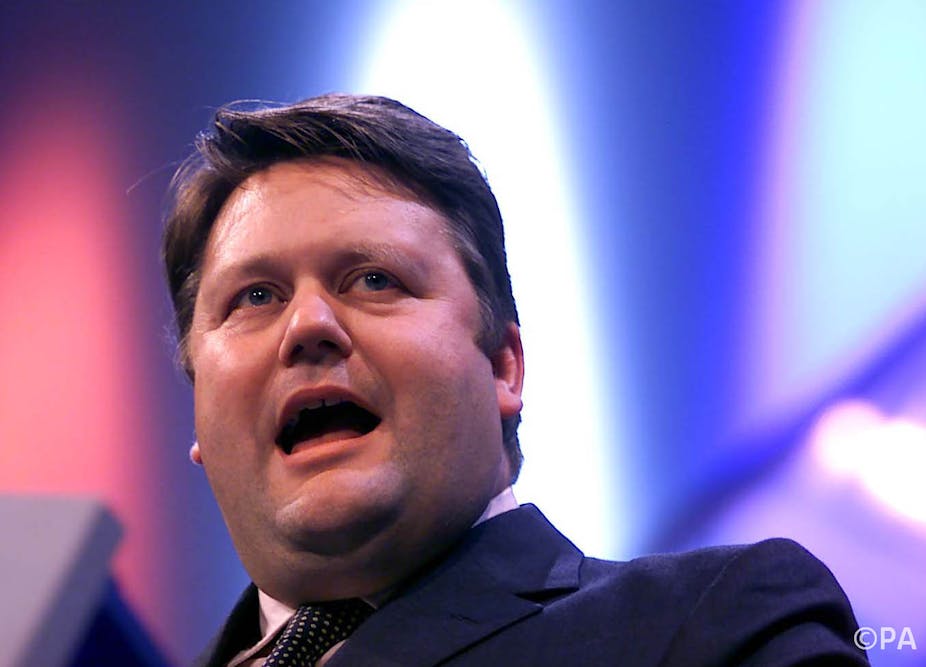This week Tom Galbraith, better known as former House of Lords leader Lord Strathclyde, finally published his proposals for how Holyrood should be reformed if Scotland votes no in September.
Immediately endorsed by David Cameron and Scottish Tory leader Ruth Davidson, they included devolving all control of income tax power to Scotland and various aspirations such as shifting housing benefit and handing over 10% of VAT revenues.
It means all three parties have now laid out their visions for a post-independence Scotland. All envisage shifting more power north, but with marked differences. Commentators are suggesting that Strathclyde’s proposals go furthest of all, totally upturning the Tories’ longstanding resistance to devolution.
With Gordon Brown calling on the parties to coordinate their proposals, we asked our panel what Strathclyde’s proposals meant for the campaign.
Jo Armstrong, Professor of Public Policy, University of Glasgow
The Strathclyde Commission’s recommendations provide the strongest signal so far that life in Scotland will be different after the referendum, even with a no vote.
Whether the parties’ offerings will be sufficient to convince the voters to stick with the union is unclear. Unfortunately it seems inevitable that it won’t be possible to see what is really on offer until the politicians in Westminster and Holyrood have agreed a final package.
This is not achievable prior to September’s referendum. It would take a herculean effort to get everyone to reach an agreement in less than four months, not aided by the summer recess looming.
This certainly lays the parties open to the charge that they promise the transfer of powers but may never deliver. It’s easy enough to point to examples where past promises have been broken and it probably doesn’t help that the only reason the three parties are doing this right now, before the new powers gained under the Scotland Act 2012 are fully developed, is because of the independence debate. On the other hand, if they don’t make changes, it seems reasonable to assume the desire for another independence referendum within the next decade would be overwhelming.
Additional income tax powers seem inevitable in any package. Less clear is the level of flexibility the Scottish parliament would have over things like income tax bands or tax rates. The Conservatives are proposing total control on earned income, but Labour wants to retain some restrictions.
Transferring control of welfare payments such as housing benefit also seems likely as housing is already devolved. But while superficially attractive, the practicalities could limit aspirations. Housing benefit is part of the new universal credit system, so unpicking the benefit from the unified payment could be both expensive to the taxpayer and complex for benefit recipients.
Devolving the three significant non-oil revenue raising taxes of corporation tax, national insurance and VAT seems off the table. EU rules would prevent devolving VAT (hence the Strathclyde Commission indicates that ring-fencing a share for Scotland could be a next best option). The problem with devolving corporation tax is that tax competition between Scotland and the rest of the UK is not thought desirable. Meanwhile varying NI rates between Scotland and the rest of the UK would add to employers’ costs and has the potential to reduce employment opportunities.
Post September, the electorate will need to get used to a Scottish parliament that has a greater say in how it raises its revenues, regardless of the referendum result. This will enhance the need for Scotland to better assess the trade-offs between the tax and spending options.
Strathclyde proposals at a glance

David McCausland, Head of Economics, University of Aberdeen
Although there is a broad consensus across three of the unionist parties, there are clear differences. Conservative leader David Cameron has pledged full devolution of income tax. Labour’s proposals are more modest at 15p in the pound. Both include the ability to increase tax rates on higher and additional bands.
The Barnett formula will still be used to calculate Scotland’s block grant, but this grant will form a smaller proportion of funding given the new revenue streams coming from Scottish income tax payers. These proposals don’t make Barnett any more or less workable. They won’t materially impact on the higher per-head spend in Scotland that results from using the formula, nor the fact that the formula does not take account what this country needs or what that costs.
A striking similarity between the Conservative proposals and the Labour ones endorsed by Gordon Brown earlier this week is the taxes that are reserved for Westminster control, such as air passenger duty and corporation tax.
In short, the potential benefits from either proposal are relatively limited. They also have a downside risk. If Scottish political parties have a greater appetite for tax and spend, then Scotland could become a relatively high income-tax country. This could damage the labour market. And, as highlighted by the EU report earlier this week, income taxes are not the most growth friendly. So, economic growth may be hit, too, especially if the increased spending is not on investment. This could make England and Scotland more different in future than they are at present.
Previous Scotland Decides ‘14 panel discussions are available here

